Learn how to leverage Social Proof with utmost efficacy in your marketing.
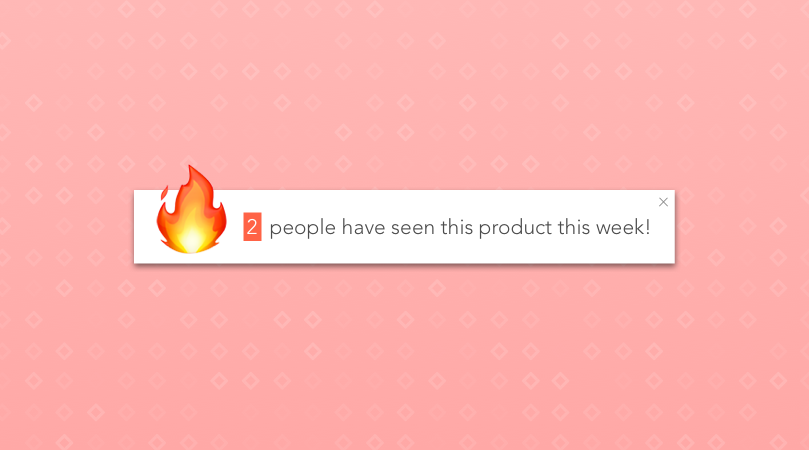
Learn how to leverage Social Proof with utmost efficacy in your marketing.
Marketers love the idea of social proof. It’s that one magical psychological tactic that has proven to make customers either click or convert.
This seems like an easy fix when it comes to implementation - countless marketers rave about the success of their social proof.
However, most marketers actually just scratch the surface of what’s at play when social proof is used for psychological marketing.
How many of you actually go in-depth about social proof psychology?
What are the reasons for the social proof effect?
If social proof doesn’t always work for you, why is that?
This article goes deeper into social proof marketing, to shed some light on this powerful psychological tool.
And don't worry, all of these questions will be answered soon enough.
Let's jump straight in.

Most of you know what social proof is, but let’s recap:
Social proof is a psychological and social phenomenon where people assume the actions of others in an attempt to reflect correct behavior in a given situation.
In short, people look to others to decide what to do. This kind of peer-sanctioned behavior has been very effective in the marketing world.
Originally popularized by Robert Cialdini, social proof eventually spread as the go-to psychology used in stores, webshops, and businesses around the world to influence their target audience.
No doubt you’ve seen signs of social proof marketing before:
The most striking example of social proof marketing I can remember is Kony 2012.
Remember how rapidly that campaign grew? So much that it became a “movement”, where people felt obliged to do react because the video emphasized the masses.
 Kony 2012 posters emphasizing the masses.
Kony 2012 posters emphasizing the masses.
Social proof is so powerful it can cause movements and crazes.
In eCommerce, social proof can be leveraged in many ways. Product badges, for instance, like “bestseller,” “most viewed,” or “hot right now.”
Plus, product badges inform filtering options, so that you can refresh your customer’s product search using social proof messaging.
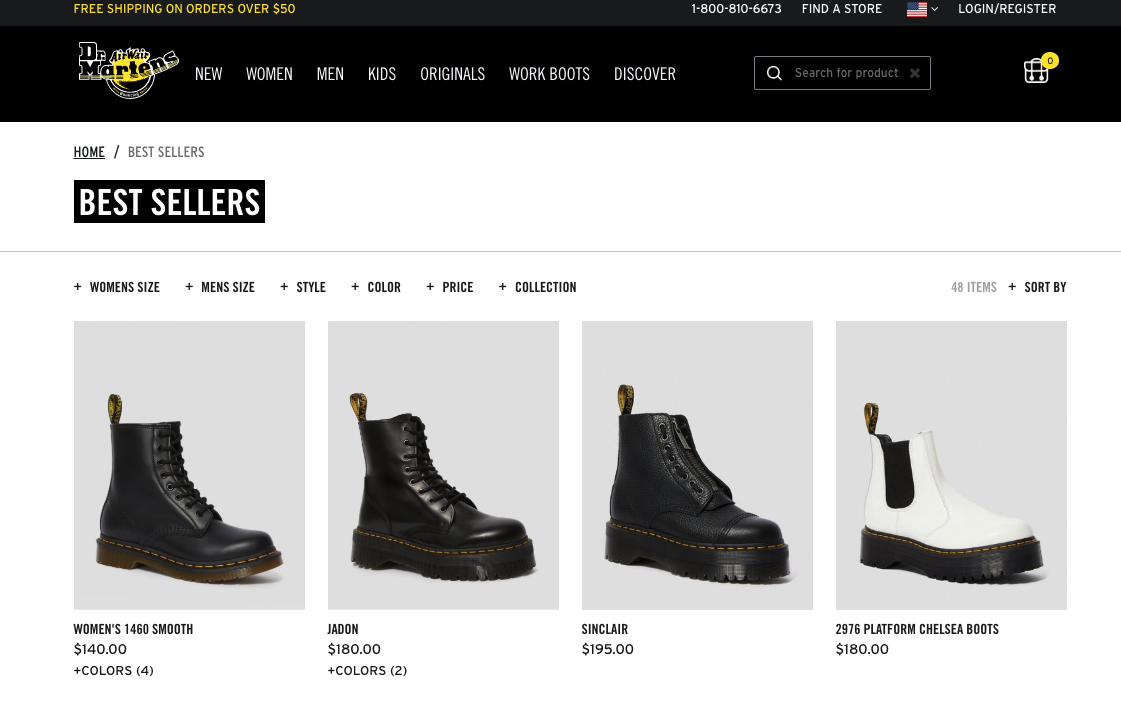
Dr Martens product badge filtering.
These "social proof" words implicitly say that a product is a popular choice, and thus draw people’s attention to it.
You can optimize all your on-site copy with social proof messaging to drive purchase behavior.
The psychology of unity, for example, can boost the appeal of signing up for a newsletter, which is also part of the psychology of social proof:
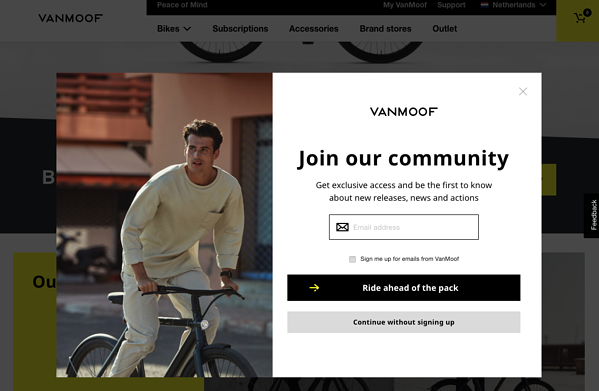
Van Moof leveraging social proof in “join”, “community”, and “pack”
In social media, social proof is, well, in the name. Ecommerce strategies like influencer marketing, micro-influencers, brand ambassadors, and leveraging like buttons and reviews are another great way to see social proof at work online.
So social proof has prolific use cases. But this means that it’s not always easy to get it right.
Let’s discuss all of the mechanisms behind a good and bad use of social proof marketing.
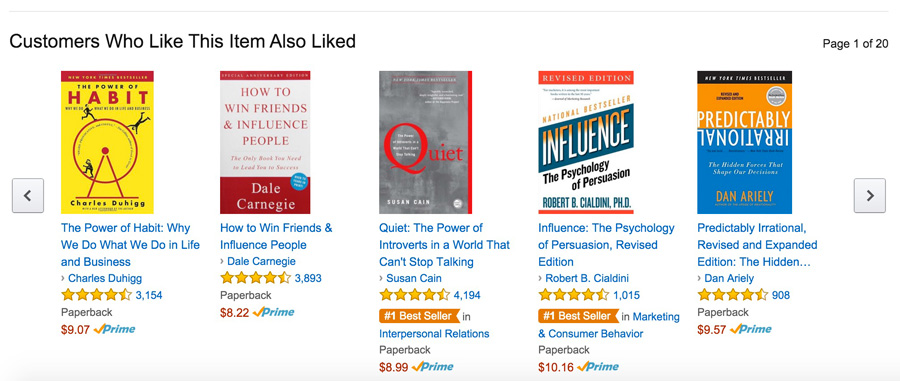
Amazon leveraging social proof as product recommendations
Not every buyer will need social proof to help guide their decision-making. You have different types and shoppers, segments, and your product promotion will look different for every product.
Despite this, a lot of consumers look to social proof to decrease choice overload and make more informed purchases.
With that, social proof can be especially effective in the following situations:
Naturally, there are many situations where social proof can be a winning psychological marketing technique.
But these are the ones that we've had experience with, and are already well-documented to give you a more holistic picture.

Let’s say someone goes on a holiday to Barcelona for the first time but doesn’t know which hotel to book.
Having an (honest) message showing that an option that’s either popular or a bestseller will probably prompt them to investigate the hotel.
Why does this work?
When shopping online, individuals can’t evaluate the product directly. So if someone is unfamiliar with a specific product, they tend to rely on external cues and follow the buying behavior of other consumers.
Popularity cues, therefore, provide reassurance of the quality of the product.
These can enhance a person’s purchase intentions.
Plus, consumers are likely to think that more popular alternatives are of superior quality because the link between popularity and quality is so intuitive which makes this association automatic.
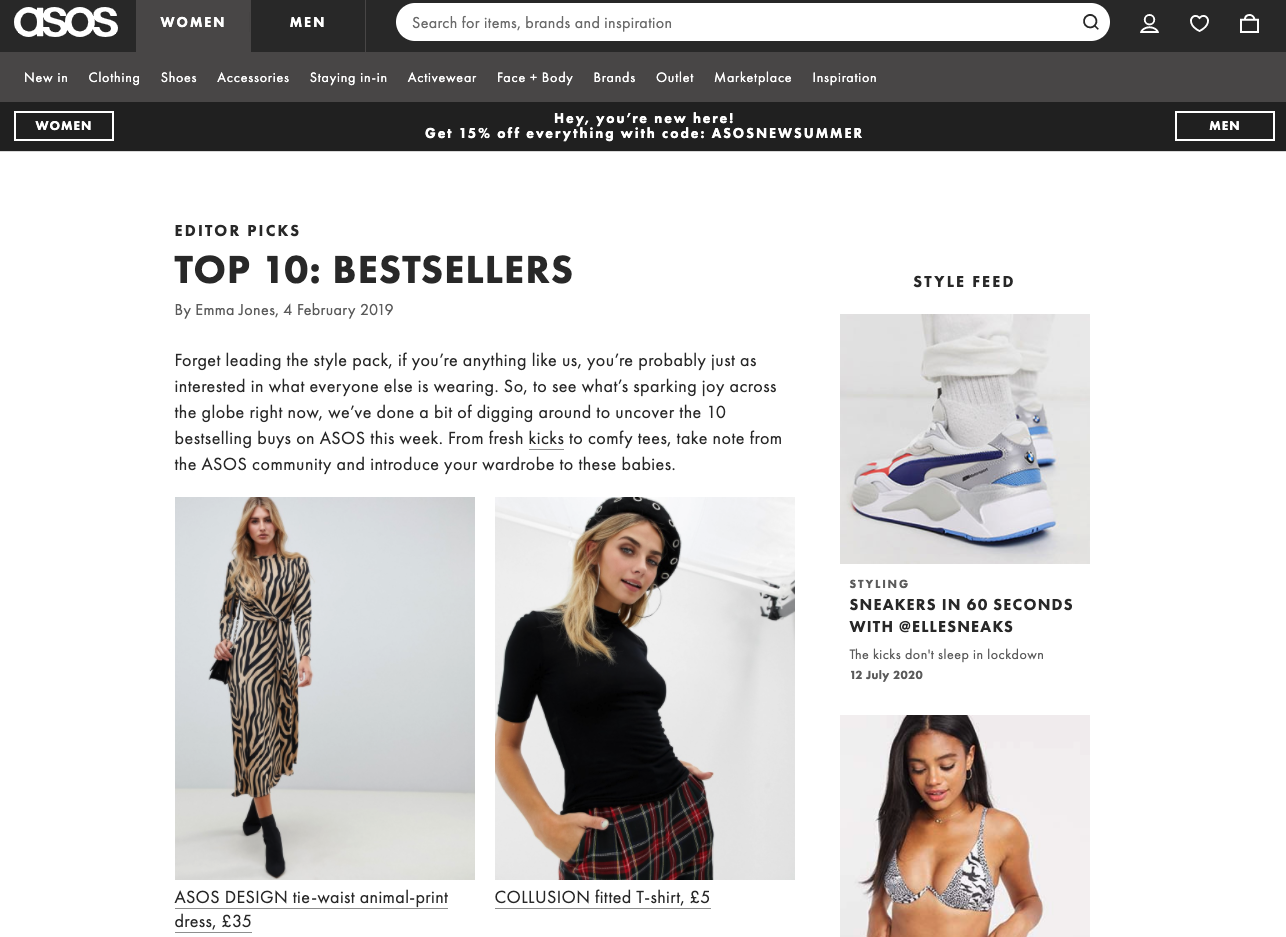
ASOS: bestseller page to drive purchase behavior. Best practice? Leverage social proof insights in other parts of your webshop like blogs, newsletters, or extra resources and information.
But this isn’t only the case when customer browse for a travel-related products. Social proof can work just as well for individuals who want to buy in fashion.
Similar to word-of-mouth, when someone buys fashion products online, popularity cues can be used as a strategy to reduce risk and eliminate uncertainty about the quality of the brand’s clothes.
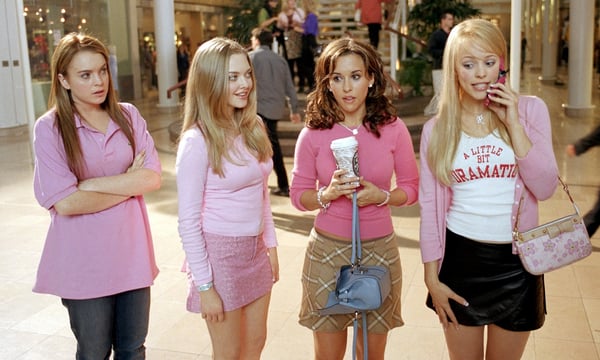
Next, consider the Mean Girls scenario. You arrive at a new school. You're propelled into a blonde-makeup-wearing-mini-skirt-totting land of the plastics.
Like every teenager, you seek social approval.
So, when you hear, “on Wednesdays we wear pink,” you’re going to find a way to make that a reality. Because, obviously, this is the most fetch (“Gretchen, stop trying to make fetch happen! It's not going to happen!”) thing you could do.
Mean Girls references aside, the same applies to eCommerce. Popularity cues signal to potential buyers that many people have bought the product.
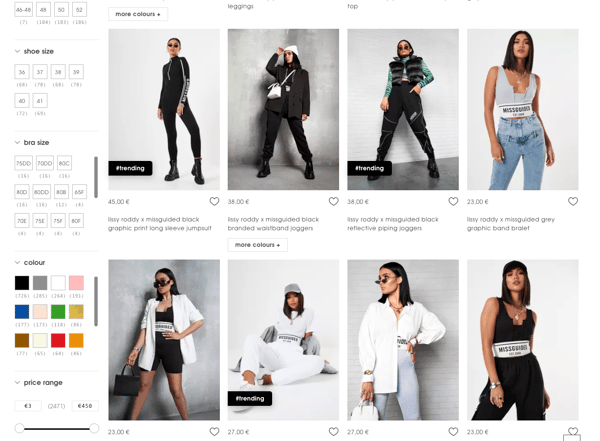 Miss Guided: #trending product badge leverages social proof
Miss Guided: #trending product badge leverages social proof
It provides social validation for the product that’s labeled with a social proof message.
This means that by buying a socially “approved” product, you’re more likely to be accepted by your peers who are already carrying out the same behavior.
Psychologically - although sometimes subconscious - this will reduce the chance of being negatively judged.
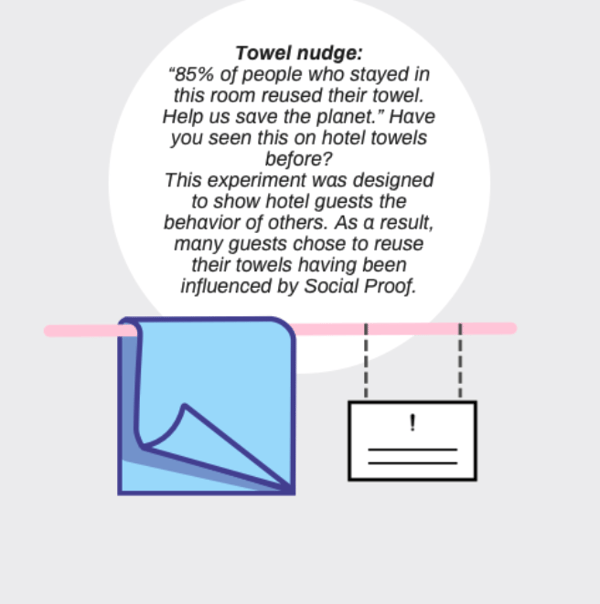
This social validation is appreciated more by people who score high on the trait of self-monitoring.
High self-monitors are concerned with how well products present their identity and what the perceived image is of others when they own that product.
Like how Miss Guided leverages the hashtag “trending” reinforcing the attitude that if their customers own a “trending” product they’ll be hip, alike to others, and kept up to date with popular fashion.
Knowing you have a self-conscious audience that cares about what other people think when they use your products is important.
While this may be a hard statistic to come by, it's something that will drive eCommerce sales and enhance your brand perception.

So what about product categories besides fashion and travel?
Are consumers looking for functional products like vacuums or laundry detergent also susceptible to social proof?
A million times, yes.
When buying these non-conspicuous products (products that one doesn’t attach their social image to or identifies to), popularity cues can actually enhance the perceived quality and thereby improve consumer attitude towards your brand and products.
The same rules apply as with the previous industries: Under conditions of uncertainty, we often rely on others for information about whether we’ll like something.
This might lead people to align with the majority in functional, non-identity product categories (like drills, vacuum cleaners, or laundry detergents).
Is someone buying a drill for the first time? Reviews and customer ratings are really important here.
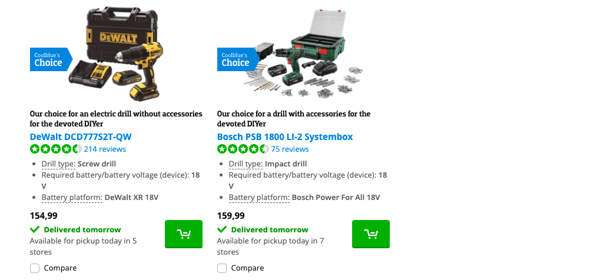 Coolblue: best social proof practice for utilitarian products? Have 100+ reviews
Coolblue: best social proof practice for utilitarian products? Have 100+ reviews
Funnily enough, makeup or skincare products are also identity products but less publicly observable.
In other words, for these products, the quality attribute is more important. And consumers may rely more on popularity labels to make the final purchase decision.

In order to leverage social proof marketing in the best way, you should consider whether the products being bought are for your customers or someone else.
Creating shopper personas and customer profiles is key here: more often than not you will have a gift-oriented segment that should be served different messages.
You heard it hear first: Those buying a gift for someone else will rely heavily on social proof cues to inform their decision.
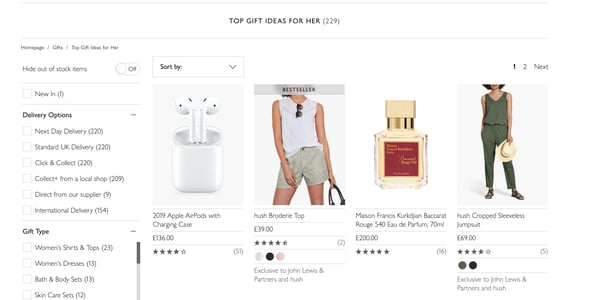 John Lewis: product badge “bestseller” and “top gift ideas” page
John Lewis: product badge “bestseller” and “top gift ideas” page
If you’re unsure of what to buy for someone, you’ll be more inclined to buy something that you know a lot of people like, hence the effectiveness of social proof.
When buying for someone else, you also want to decrease the risk of the person not liking the gift. Social proof psychology decreases this risk, leading to increased purchase intentions.
Knowing that a lot of people like or endorse a product will increase the chance that the person you’re buying a gift for will like it too.
These examples of effective social proof marketing have been tried and tested. They work and should be relatively easy to implement if you can get the psychology right.
Now, how about when social proof marketing doesn't work?
Social proof is not a one-size-fits-all approach. As I said before, the primary condition that needs to be met is that someone is uncertain about what s/he should decide in a situation.
Of course, when social proof doesn’t work is when it looks fishy or unbelievable.

ThredUp: Using fake social proof is a Dark Pattern that was called out by Princeton’s University Crawl
 Spanx using fake customer reviews
Spanx using fake customer reviews
But aside from this, there are reasons why social proof wouldn’t work even if your audience believes the message you show.
These are super important to keep in mind.

If someone already knows what to do and has knowledge on the subject, it’s not very likely that the person will be persuaded otherwise by social proof.
The situation isn’t uncertain and, therefore, the person doesn’t need external cues to make a decision.
The whole point of social proof is that people need guidance in situations when it’s unclear to them what to do.
Therefore, it’s better to let these people use their own knowledge to find what they’re looking for.
Or you could use a different psychological marketing technique to entice them better.

The same goes for products that are meant to be self-expressive (products with symbolic features or personal and social meanings) rather than functional products.
Why is this the case?
Well, the point of self-expressive products is to enable an individual to express themselves so they stand out in the desired fashion.
This stems from a romantic desire and need for uniqueness, leading consumers to want to positively differentiate themselves.
You can think of the need for uniqueness as the desire to differentiate oneself from others through buying and using alternative consumer goods.
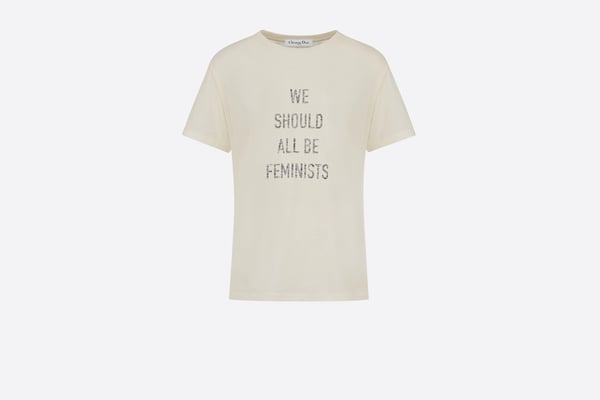 Dior
Dior
Romantic desire might lead to social proof appeals (e.g., “over a million sold”) to backfire.
It’s no wonder that brands like Burberry throw away excess clothing to make sure it stays a restrictive product. They make use of the opposite of social proof, which is exclusivity scarcity.
Individuals doing what “everyone else” is doing isn’t a good strategy to positively differentiate oneself.
So, social proof appeals may become counter-persuasive when a person is motivated to maintain their self-expression.
If you're a luxury brand, you should swap out your social proof marketing with exclusivity, need for uniqueness, and scarcity.
So even if someone isn’t being explicitly self-expressive, there’s still a high chance that they won’t go for the most popular option.
Public consumption often involves self-presentation, leading consumers to choose products that present the self positively.
As a result, people may avoid both the majority and minority options to avoid being seen as either a sheep or straight-up weirdo.
You should have a clear understanding of your target-market, the language they use, and the platforms they shop on in order to understand their mindset.
Psychographic segmentation is a good way to track your customers’ behavior, and then group them accordingly to see which psychological profiles will respond to social proof, and which ones won’t.
 Gucci’s 2018 fall collection for men
Gucci’s 2018 fall collection for men
Gucci is well known for countering conformity. It’s all in their value proposition. It’s not often you’ll see this outfit on the street:
 Gucci’s folk fashion Fall 2018
Gucci’s folk fashion Fall 2018
Gucci embraces non-conformity and should, as long as they continue to do this, not use social proof marketing messages for their products or their brand.
People may believe they’ll dislike things preferred by the majority in identity-relevant categories besides fashion.
Moreover, some people experience cognitive dissonance when they buy an exclusive item that later becomes popular, as it makes it harder for that person to signal uniqueness.
Cognitive dissonance is the mental discomfort one gets when their actions don’t align with their beliefs. Or when that person has two contradicting beliefs.
For example, if someone bought an item (believes it’s special) because it was exclusive, and it later becomes popular (meaning it’s not that special anymore), it probably won’t sit too well with them, eventually leading them to like it less.
 Remember the meme about hipsters saying “I liked it before it was cool?”
Remember the meme about hipsters saying “I liked it before it was cool?”
→ that’s the schoolbook example of this feeling.
Once again, luxury brands should strive to communicate uniqueness and exclusivity as opposed to social proof marketing.

Moreover, showing that two people have bought an item doesn’t leverage social proof cleverly at all, especially since alternative products will have been bought over twenty times.
Having social proof in place when there isn’t actually a lot going on will backfire.
Using small numbers for your social proof messaging can also hurt your conversions in both the short and long term.
Short term, people will think the product they’re looking for isn’t as hot as they’d hoped.
And longterm, it hurts your brand perception since the products people are shopping for aren’t that sought after by the masses.
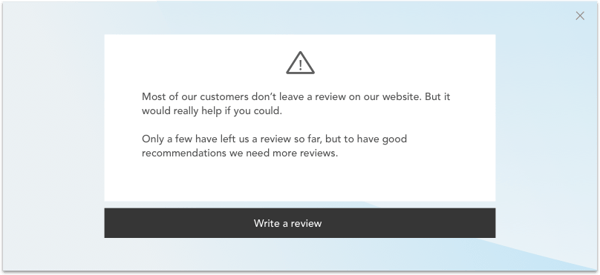
It’s also not wise to use social proof for promoting behavior that you don’t want.
Showing that many people are carrying out “bad” behavior gives the impression that this is the norm.
The psychological impact here is if a norm is created and that norm is unwanted behavior, you are actually hurting the desired behavior (in the above example this is writing a review).

Even Wikipedia gives off the wrong message when asking their readers to donate to their cause.
By saying “only a tiny portion of our readers give,” they’re telling their audience it’s normal not to give. This isn’t very persuasive.
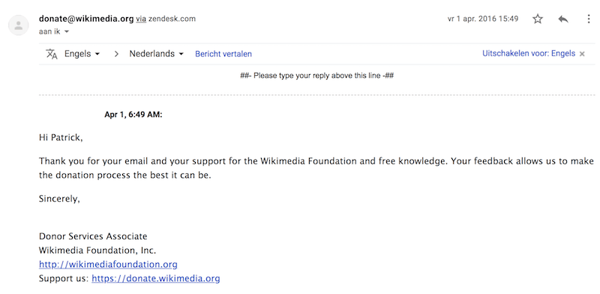
Fun side note!
In 2016 I reached out to Wikipedia to point this out. Unfortunately, all I received was an email saying thanks for the suggestion… with no further adjustments to the message up to this day...
Lastly, the effects of your social proof messages largely depend on the culture of your audience.
For example, let's consider the cultural differences between collectivist and individualistic cultures.
But first, a quick definition by Hofstede himself:
“Individualism can be defined as a preference for a loosely-knit social framework in which individuals are expected to take care of only themselves and their immediate families.
Its opposite, Collectivism, represents a preference for a tightly-knit framework in society in which individuals can expect their relatives or members of a particular in-group to look after them in exchange for unquestioning loyalty”.
In layman’s terms, individualists focus more on themselves and close connections and collectivists have more tight-knit communities and value the wisdom of the crowd.
Android “be together not the same”
Needless to say, people with a collectivistic mindset are very likely to be persuaded by social proof because of their nature of unquestioning loyalty.
This doesn’t mean it wouldn’t work for individualistic countries - people are just more dependent on themselves and often do things without the need for a group to support them.
Therefore, individualistic people are more persuaded by those who are similar to them rather than simply seeking popularity cues to guide their decisions.
Which, in itself, is a form of social proof.
All in all, social proof is a great strategy. But you need to know who and when to target.
It’s not the magical marketing silver-bullet that you may think. But, when used in the right context, social proof will help you become a go-to brand that people trust, like, and shop with.
To wrap up the main takeaways of this article;
Do:
Don’t: